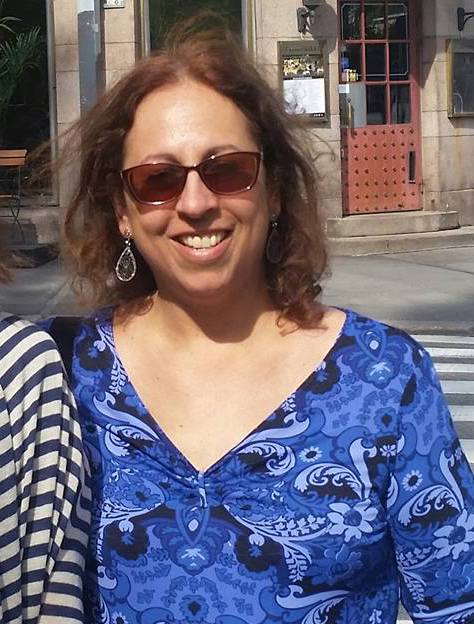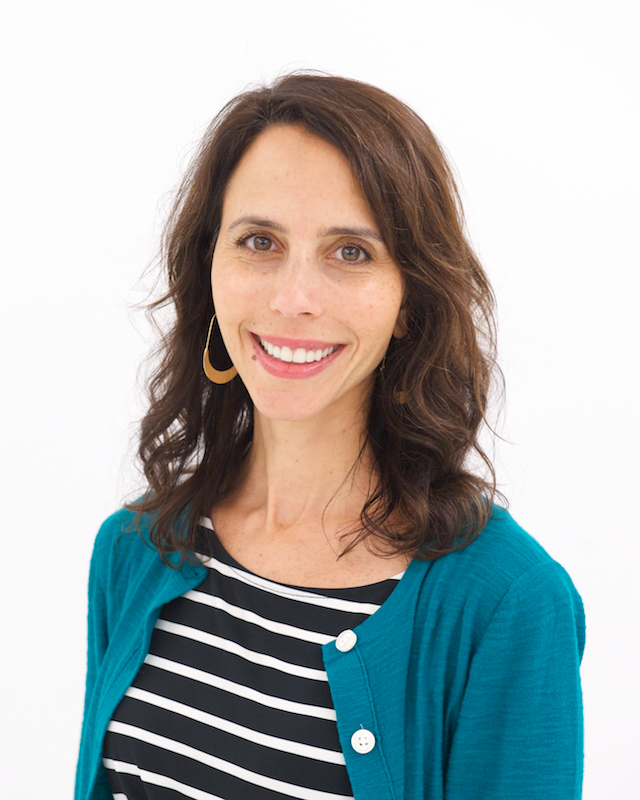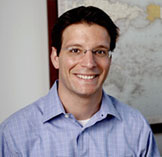October 29, 2019
Faculty sabbaticals, otherwise known as fellowship leaves, provide professors with the opportunity to take time off from their teaching responsibilities, and focus solely on their research, pedagogy and creative projects.
Among the faculty at Borough of Manhattan Community College (BMCC/CUNY) who returned in Fall 2019 from their sabbaticals are Professor of English Cheryl J. Fish, Associate Professor of Academic Literary and Linguistics Heather B. Finn and Associate Professor of Modern Languages J. Thomas Means.
The professors held residencies in universities, wrote articles and creative works, delved deeply into their scholarly areas of interest and published books. Ultimately, they have brought their renewed perspective back to the classroom, sharing it with their students.
Eco-justice from the perspective of indigenous people
In September 2018, as part of her sabbatical, English Professor Cheryl J. Fish completed a month-long creative writing residency, the Kulttuuri Kauppila Artists Residency, in the north of Finland. Over the years she has focused on the indigenous people of the region as they respond through film and other works of art, to the environmental exploitation that affects their homeland.
 “Sami photographers, videographers, artists and filmmakers offer a different view on life, land, and the relationship between human and non-human nature that BMCC students can learn from and relate to,” says Fish, who first traveled to Finland, teaching and conducting research on a Fulbright fellowship, in 2007. She has returned several times and deepened relationships there. A few years ago, Fish brought to BMCC the Finnish Sami photographer and filmmaker Marja Helander, who shared photos and videos on the arctic Sami experience.
“Sami photographers, videographers, artists and filmmakers offer a different view on life, land, and the relationship between human and non-human nature that BMCC students can learn from and relate to,” says Fish, who first traveled to Finland, teaching and conducting research on a Fulbright fellowship, in 2007. She has returned several times and deepened relationships there. A few years ago, Fish brought to BMCC the Finnish Sami photographer and filmmaker Marja Helander, who shared photos and videos on the arctic Sami experience.
“This exposure to the relationships between modern life in cities and the reindeer herding tradition, as well as to the changes wrought by melting ice, mining in the Sami areas and vanishing habitats encourages students to write about their own heritage, cultural influences, traditions and local knowledge,” she says.
In this most recent sabbatical, Fish presented a talk, “Media, Image, Sound: Elegiac Ecojustice by Sami Artists in Response to Extractivism and Climate Change,” for the University of Helsinki Environmental Humanities Seminar. She also co-organized with three Finnish professors from University of Helsinki and University of the Arts, “The Arts for Justice: Indigenous Coalition Building and Artistic Practices,” sponsored by the University of Helsinki’s environmental humanities and indigenous studies departments.
Once back in the United States, Fish delivered the May 2019 keynote Valerie J. Hoffman Lecture in Gender Studies, “Media, Image, Sound: Eco-Media and Artistic Activism by Sami Women,” at Union College in upstate New York and met with classes in creative writing and environmental writing.
Her sabbatical also resulted in publications including essays on the work of Swedish Sami filmmaker Liselotte Wajstedt and Finnish Sami photographer Marja Helander which appeared in the Journal of Scandinavian Cinema and an anthology, Nordic Narratives of Nature and the Environment: Ecocritical Approaches to Northern European Literatures and Cultures.
She completed an eco-poetics manuscript, Crater & Tower: Poems, forthcoming from Duck Lake Books in spring, 2020, and her poems about Finnish sauna culture, the Finnish epic poem The Kalevala and other topics appeared in the literary journals Hanging Loose and New American Writing.
Overall, she says, “I see myself as an ally, focused on raising awareness to non-indigenous people about indigenous perspectives because we often don’t see them in the mainstream press. In the United States, indigenous perspectives, history, survival strategies and traditional knowledge should be recognized, respected and considered in all fields. We should read and incorporate their work, and learn indigenous history from their perspectives.”
An ethnographic study on the Lower East side, and its impact on student learning
 Professor Heather B. Finn, who is also deputy chair of the Department of Academic Literacy and Linguistics, remained in New York City for her fellowship leave.
Professor Heather B. Finn, who is also deputy chair of the Department of Academic Literacy and Linguistics, remained in New York City for her fellowship leave.
“Although I was close to home, the time away from teaching and administrative work gave me the opportunity to focus on two local projects that advanced my research agenda,” she says. “These projects allowed me to pursue scholarship related to educational policies and the reading and writing development of English learners in post-secondary educational contexts.”
In her first sabbatical project, Finn conducted fieldwork — a 10-month ethnographic study — with a newly implemented Career and College Readiness class for English as a Second Language (ESL) students at a community-based organization on the Lower East Side.
“The time I had on fellowship leave that year enabled me to conduct weekly class observations, as well as interview students, teachers and administrators in order to study the ways in which national standards and policies guide adult basic education and inform reading and writing instruction for adult ESL students,” she says.
Finn received a PSC-CUNY Research Award for this work.
She also received, with fellow Academic Literacy and Linguistics Professor Sharon Avni, a BMCC Publication Grant for a second project that looked closely at a newly created co-requisite course at BMCC.
“This second project examined co-requisite teaching and learning for ESL students at BMCC,” says Finn. “We received the BMCC Faculty Publication Grant to complete our manuscript on this work, and we are presenting our findings at two national education conferences.”
The scholarship, she says, is closely connected to her teaching at BMCC.
“Taking the time to interview faculty and carefully observe varying course structures gave me the opportunity to reflect on the role of reading and writing in my own classes, as well as gain a more nuanced understanding of the best teaching practices in courses designed for English learners,” she says. “I returned to the classroom in fall 2019 a more thoughtful and reflective instructor.”
Publications that enable other practitioners to build language learning in innovative ways
 During his 2018 sabbatical, Modern Languages Professor J. Thomas Means completed two book manuscripts; one published by and one forthcoming from Hippocrene Books. He placed an article in a leading peer-reviewed journal in Italian Studies, and completed a manuscript on innovative language teaching practices.
During his 2018 sabbatical, Modern Languages Professor J. Thomas Means completed two book manuscripts; one published by and one forthcoming from Hippocrene Books. He placed an article in a leading peer-reviewed journal in Italian Studies, and completed a manuscript on innovative language teaching practices.
Much of this work, he says, “focuses on my specialized area of scholarship, task-based language teaching (TBLT).”
For example, one of his books just out from Hippocrene, Instant English Vocabulary Builder, presents over 4,000 Spanish words that are the same in English, but for a suffix change.
“Most English words that end in ‘-ary’ are the same in Spanish except for the fact that they end in –ario. For example,” he explains, “ordinary is ordinario in Spanish; salary is salario. I identified 23 of these suffix ‘bridges’ and documented every word that follows them across the book’s 23 chapters. We believe that this is the first time that such a systematic illustration of these ‘true cognates’ has appeared in book and audio format for the ESL [English as a Second Language] market.”
The second book being published through Hippocrene is the reverse — it presents over 4,000 English words that are the same in Spanish, but for a suffix change.
Means also created an online audio component for the book, “which got me back in the recording studio,” he says. “I am the English voice on the online audio in both 2018 books; all Spanish words are recorded by an actress from Ecuador.”
Using cutting-edge technology to enhance language pedagogy will benefit his teaching practices at BMCC, he says. “I simply know more now than I did last year about how publishers produce, edit and protect their audio/video components.”
Sharing the focus of his sabbatical, in February 2019 Means presented a talk, “An adaptable and responsible pedagogy: Task-based Language Teaching (TBLT),” at the Rutgers University Language as Communication and Literacy Conference.
Overall, he says, the sabbatical experience “has shown me that many teachers are interested in TBLT but don’t know where to begin. My book was written to bridge that gap. It does not prescribe a different way to teach, it simply provides task design, guidance and images for implementing TBLT … an accessible means to do so in real classrooms, K-16.”
Academic leave options and application deadlines
According to the Academic Leaves page on the BMCC website, “Fellowship leave applications are due December 1 prior to spring review for leave to be taken the following academic year, or May 1 prior to fall review for leave to be taken the following spring semester or following academic year.”
For information on eligibility or how to apply for academic leave, contact Greer J. McPhaden, director of faculty appointments: gmcphaden@bmcc.cuny.eduor (212) 901-6226.
STORY HIGHLIGHTS
- Fellowship leaves (sabbaticals), provide time away from the classroom for conducting research, improvement of teaching, and creative work
- Faculty on sabbatical sometimes travel, or work is conducted locally
- For information on academic leaves, contact Greer J. McPhaden, director of faculty appointments: gmcphaden@bmcc.cuny.edu or (212) 901-6226

